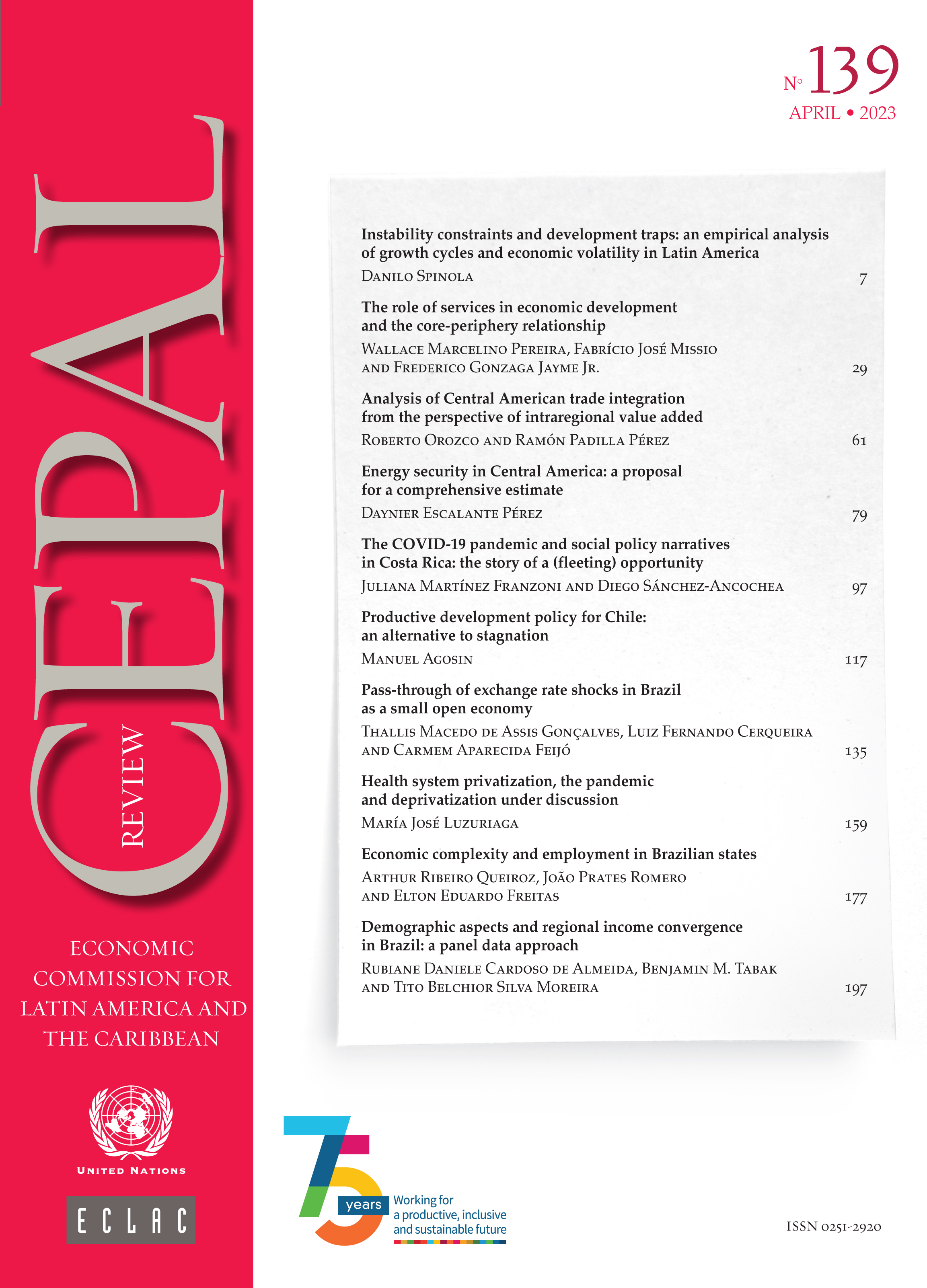-
Pass-through of exchange rate shocks in Brazil as a small open economy
- Source: CEPAL Review, Volume 2023, Issue 139, Sep 2023, p. 135 - 157
- Spanish
-
- 20 Sep 2023
Abstract
An econometric model is used to analyse pass-through from the exchange rate to inflation, considering the monetary policy instrument variable, the target variable, the level of economic activity, the level of credit and the exchange rate. This system is exogenously affected by commodity prices, the level of external sector activity and the uncertainty perceived by international investors. Using vector error correction models, we find greater pass-through to administered prices than to free prices and a marked asymmetry characterized by stronger exchange rate pass-through when the domestic currency appreciates (deflationary effect) than when it depreciates (inflationary effect). Moreover, we note that the asymmetry in pass-through to domestic prices is due to the behaviour of free prices, since asymmetry in administered prices is not very significant.




